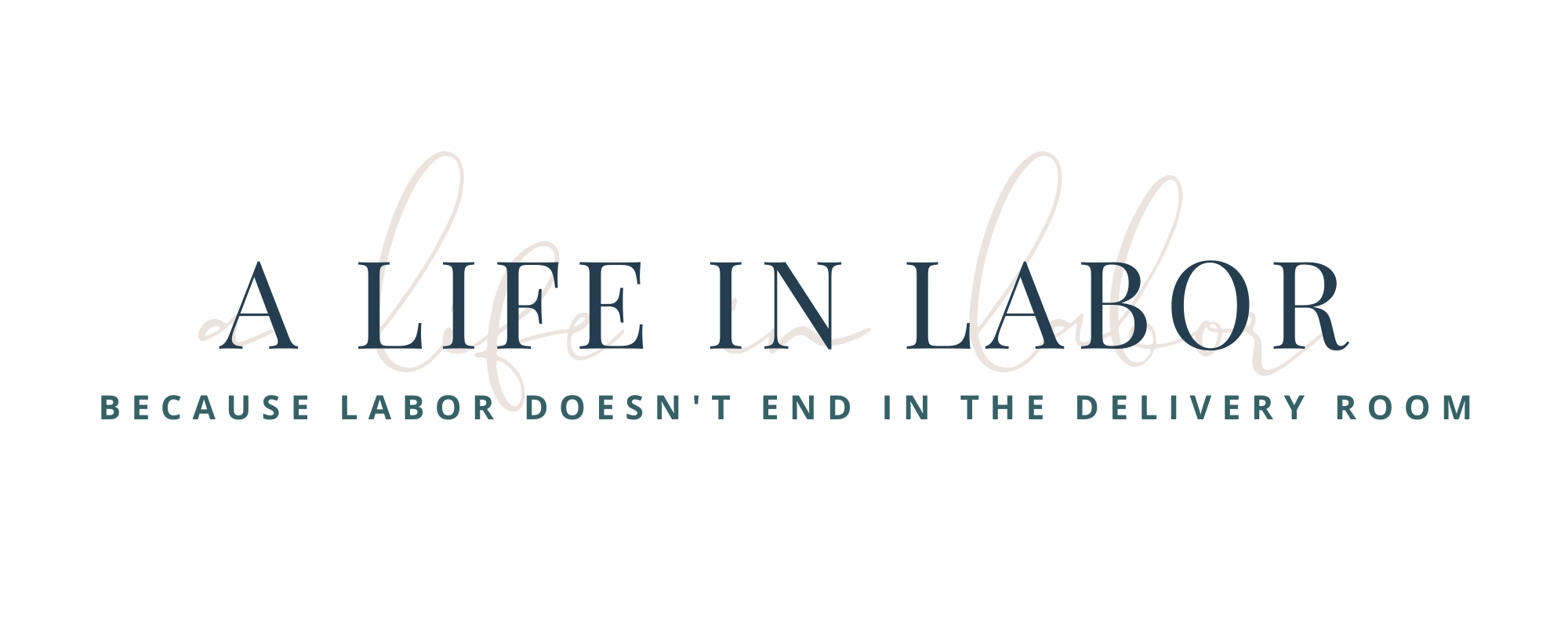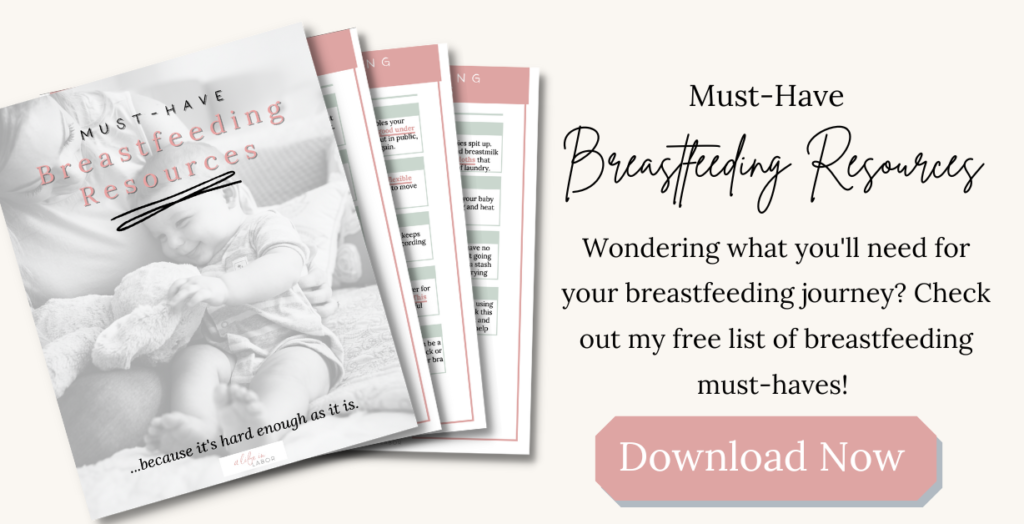Breastfeeding 101: What You Need To Know About Breastfeeding
You've done it. You've delivered your tiny, new baby, you're right in the middle the golden hour and you realize, “He must be hungry”. Oooh s#!t it's about to get real. What do I need to know about breastfeeding my new baby? You need Breastfeeding 101 STAT!
Yeah, the morning sickness (aka all day sickness. amiright?), heartburn, and labor pains were real but…those were expected to be rough. Breastfeeding your baby is going to come naturally and easy…right?
Mama, I understand that thought completely. Before I ever even got pregnant I knew I wanted to breastfeed my babies. I was sure that I wouldn't be one to give up. At work, I educate mothers on breastfeeding every day. Because I am a labor and delivery nurse, I'm lucky enough to get to see mommies' first experiences with nursing their newborns on the regular.
I see the struggles and I am able to help women through it, but nothing compares to going through it first hand. I learned a hell of a lot breastfeeding my own newborn regardless of how many times I had witnessed someone else breastfeeding. That's why I new I needed to write this breastfeeding 101 for you.
Breastfeeding 101 Tips
If you have decided that you want to breastfeeding your newborn and you want to give it your all, you need to be prepared. It's advised that you go into it knowing what to expect from nursing a newborn. It's not going to be smooth sailing 100% of the time and there will be times when you think maybe it's not worth it. So let's dive right in.
Please note: I am not a doctor and I am not giving medical advice. Information on this website is not intended to diagnose, or treat any form of any disease. This article is for informational and entertainment purposes only. I am only telling you what worked for me. Please refer to my Disclaimer Page for more information.
Breastfeeding 101: Determine That Breastfeeding Is Worth It
Breastfeeding your baby is the most natural and beneficial way to feed her. The benefits for mom and baby are incredible! But just because it's the best thing for you and for your baby does not mean that it comes easy. Breastfeeding can be painful and takes a lot of work, and an incredible amount of patience and dedication.
Whether you are the mom who made the decision early on to commit to breastfeeding well into toddlerhood, or are the mom who only knows that she wants to try it out, you will probably run into a few challenges. If you're not prepared for breastfeeding a newborn, you might find yourself struggling more than you expected. Not being prepared leads to wanting to give up before you've really even started.
This post might contain affiliate links. To learn more, you can read my full disclosure here.
Breastfeeding 101: Be Realistic About What You Know
I had no idea how naive I was when I made the decision to breastfeed for “no less than a year” before my baby and I even latched for the first time. I thought, “as long as I have all of the information, I'll have an easy time”. My goodness, I was wrong. So, so wrong.
It doesn't matter how much you think you already know. The struggles of breastfeeding will still make a first time mom have doubts about her ability to continue. It's all about how you take on these hurdles and how you use your resources when you find yourself stuck in a situation you weren't expecting to be in with your new baby.
Never assume that you could write “Breastfeeding 101: The Book” before you've even done it. Don't overestimate your knowledge until you're literally latching a newborn to your nipple.
Start by reading the post linked below. I dive deep into what to expect out of your first few weeks of nursing a baby.
10 Tips & Tricks You Need To Know about breastfeeding 101
As mom who's survived it herself for entire year, and has helped hundreds of mothers embark on their breastfeeding journey, I am here to share with you the 10 best tips for helping mothers succeed in breastfeeding their newborns and set themselves up for nursing success. Welcome to breastfeeding 101!
1. Work With Your Body
Can someone have the wrong kind of breasts for breastfeeding?
Short answer: No.
Long answer: Some breast shapes and sizes as well as some nipple characteristics makes breastfeeding more of a challenge but it does not automatically disqualify you from being in the breastfeeding mom club.
Flat or inverted Nipples
If you have flat or inverted nipples, you can probably still breastfeed. Your best friend is going to be the nipple shield. It's a fitted silicone nipple that suctions to your breast over your flat or inverted nipple to pull your nipple out. Your first time using a nipple shield might seem more difficult than you would like it to be, but trust me, it's just about getting the hang of it.
Small breasts
If you're afraid that your breast size is an issue, stop. I've seen all sizes on the spectrum. If your breasts are small and you fear that you won't make enough milk for your baby, you can put that out of your mind immediately. Small breasted women can make the same volume of milk as a large breasted woman. Don't ask me how, it's just a motherly miracle.
Large breasts
On the other hand, large breasted women often feel that they can't breastfeed because they fear that the sheer size of their breast will overwhelm the baby. Yes, it can be difficult when you have to navigate your breast with one hand and your baby with other. So, you aren't lucky enough to have your breast just sit neatly on your chest at the perfect level, angled just right for nursing. I totally relate. But with the right position and the essential equipment, your baby will latch. You'll just have to figure out a good position for the two of you.
- Related Read: 21 of the Best Breastfeeding Essentials For Nursing Moms
Breast Implants
Implants can be a concern when breastfeeding. I understand the fear that if you've gotten breast surgery, you won't be able to nurse. Well, to be honest, it can be true but definitely not always. I know plenty of women who have breastfed successfully with implants. It depends on where your implants are placed in your tissue, where the incision is, etc. My advice to you is to immediately get an appointment with a lactation specialist.
2. Understand The Pain Of Breastfeeding
You may have heard that if breastfeeding hurts, then there is something wrong. A nurse might even have told you that. I wouldn't doubt it. But that's not altogether true and it can be a reason why many perfectly capable moms and babies end their nursing relationship sooner than they wanted to.
Sure, excruciating pain that persists while nursing is not normal and is a cause for concern. Sorry to break it to you, though, moderate pain is actually normal while your breasts adjust to the feeling of being suckled. Truthfully, you might find rather quickly that breastfeeding can be very painful in the beginning. Key phrase- “In the beginning”. Hang in there mama!
The torment that you might experience in the early on stages won't still be there a year from now. It won't even be there two weeks from now! The pain is real but it should be short-lived. If your nipples are sensitive and your toes are curling every time your baby latches, count to ten. By day 10, the pain will decrease and by day 14 the pain should be gone.
There are definitely reasons that your pain would be abnormal, such as a bad latch, or a lip or tongue tie, and you might want to look into it if breastfeeding hurts more than just a few [long] seconds right in the beginning when your baby latches and starts to suckle. After that, feeding your baby should be pain-free, with just tugging sensation with each suck. In the mean time, there are lots of ways to minimize the pain or help heal your nipples.
3. Learn How To Latch
Latch. The thing you probably only thought about that one time when that one friend said that her baby “didn't latch” and then you never thought about it again. It's not something we typically talk about unless we're saying “my baby couldn't latch”.
Where's the conversation about how to latch or how long it took to get good at latching? Why aren't all of our mom friends giving us advice on how they figured out their latch? They just aren't. So naturally, we think it's so simple that it's not even worth talking about.
Don't let yourself be the person who has to blame the latch when talking about how breastfeeding failed. You don't have to stop breastfeeding just because your baby doesn't latch right away or doesn't have a great latch initially. Working on it is important and getting a good latch with practice is possible!
The truth is, even though sucking is a reflex that your baby is born with, it isn't always easy to get it right. If it takes you a couple of weeks (or longer) to perfect your latch and get good at breastfeeding, just join the club. Lots of mammas are right there with you.
4. Be Patient With Your Milk
Umm, what is this yellow goo coming out of my nipple? Where is the milk?
Don't fret, mama, it's Colostrum. Colostrum is the best form of breast milk that you will ever produce and it comes before the “milk” arrives. Your breasts fill with milk between the third and fifth day after you give birth. Until then, the liquid gold that your baby is getting is packed full of nutrition and immune-boosting properties.
Colostrum doesn't come in as large a volume as your breast milk will. You will have mere drops at first. If you try to pump, it's very likely that absolutely nothing will come out or maybe a few drops in an entire pumping session. I see this all of the time with women who go on to nurse their babies for a long time. It should be expected.
You ARE producing what you need, your baby IS getting fed. It's hard for our brains to wrap around the thought that a few drops of liquid (liquid GOLD, that is) could keep this tiny human alive. Well, it can and it will.
I don't want you to think that the reason you couldn't breastfeed is because you “weren't making milk”. Especially not just because your breasts weren't squirting milk everywhere or you couldn't fill a bottle in the first few days. If you're making any colostrum at all, you're probably making enough for your tiny newborn. Talk to your lactation consultant, and TRUST HER when she tells you that it's enough for now.
5. Remember That It's All About Supply & Demand
When your baby seems like she's always hungry and you're constantly nursing, it is easy to come to the conclusion that you might not have enough milk to satiate her. Keep it up, girl, because the more you nurse, the more milk your breasts will produce. Milk production is all based on supply and demand.
For the first six weeks it is crucial to establish milk supply by not limiting your baby's time on the breast. The greater the demand, the more milk your body will produce. Your breasts will not just simply continue to produce milk if your baby isn't stimulating them to do so. So, allowing your baby to nurse whenever she wants at this early time in her life is what will ultimately set you up for an easier, more successful breastfeeding experience.
The tough part is, the time when your nipples are most sensitive (the beginning, obviously) is also the time when you need to let her nurse as frequently as they want. In these first couple of weeks you hardly want to latch them at all because your nipples might be raw and tender.
Press through it, make sure your latch is good, buy some good nipple cream, and stay motivated to build your supply. You will see the pay off soon enough! Yes, you might feel like a cow whose sole purpose is to produce enough milk to feed the world, but your baby needs you and it's totally worth it.
My point is, it's best to try not to worry too much about your supply (easier said than done, I know). As long has your baby is having enough wet and dirty diapers and is gaining weight after you leave the hospital, your supply is just fine.
6. Stop Timing Your Feedings
There is no one size fits all for the amount of nursing sessions a baby needs for those first few weeks as she learns how to eat, sleep, and live outside the womb. Initially, you will notice that your baby is waking up and wanting to eat frequently, all day and all night without predictable times or duration.
Before your milk supply is established, you should be nursing “on demand”. This basically just means that you are nursing your baby when he is hungry rather than setting a timer or watching the clock to tell when you should be feeding your baby. Typically, this will be every 1.5 to 3 hours for the first few weeks but the normal range is actually even broader than that.
In order to feed on demand, you'll need to figure out what it looks like when your baby is telling you that he's hungry. Early signs of hunger include rooting, moving their head side to side, placing their hands in their mouths, puckering their lips as if to suck, fussing, or eventually crying.
Try to feed your baby before she starts to cry because crying can make a good latch more difficult and can increase the amount of air that enters the belly which only leads to gas and reflux. No fun.
Predicting her hunger will become easier over the next few weeks as a pattern will start to emerge and you and your baby will be able to get on a more predictable routine.
- Related Read: 10 Things Every Parent Needs To Know About Their Newborn
7. Be Realistic About Your Baby's Hunger Needs
If your newborn seems constantly hungry, guess what? You're probably totally normal. Girl, tell me about it. I think my son was hungry until he was about 7 months old (only kind of kidding ?). But it all makes sense when you think about it, doesn't it?
Breast milk is the ideal food for babies and therefore it is easily (aka quickly) digested. When your baby is born, their stomach is only the size of a cherry! Yes, a cherry, like the one on top of the Sunday you wish you had in front of you right now, because you're breastfeeding and you're starving– but that's besides the point.
Your newborn's cherry-sized belly grows substantially over the first month of life. Each stage of growth is going to encourage your baby to ask for more, more and then more milk to make her feel full. Since your breast milk is the perfect liquid to nourish your baby and is digested so perfectly, their little bellies get rid of it faster than you can say “cat nap”.
How long can you really expect a couple of ounces of liquid to keep a growing baby's hunger at bay? Those newborn bodies are ferociously using up every little bit of that nutrition to sustain and grow a human! Once those tiny tummies are empty, they demand more! It's nature.
8. Which Breast To Start With When Breastfeeding? Alternate!
It is important to alternate breasts to keep up supply on both sides, prevent engorgement in one, and avoid lopsidedness.
The first, and probably the most common way to alternate breasts is to do it in the middle of the feed. Never unlatch a nursing baby just to switch sides, though. In order to make sure your baby is getting a full feed, allow your baby to nurse on the first breast for as long as he is actively sucking.
When he unlatches on his own, give him a good burp, and latch him onto the other breast. Allow him to nurse again for as long as he is actively sucking. Once your baby is full, take note of which breast you left off on so you know where to start at the next feeding.
The second way to alternate breasts is simply, only give one breast per feed. You would allow your baby to nurse until he is ready to unlatch, burp him, and then re-latch him to the same side to make sure he gets all of that yummy hind milk. This is typically for mothers with a heavy supply and can get their babies full off of only one breast.
Let your baby lead the way when figuring out when or how often to switch breasts. Allow your baby to regulate the length of his feeds by letting him completely finish on one breast before moving on to the next. This way, he will always get the thirst-quenching foremilk that comes first and the creamy hindmilk that keeps her full second.
9. It's O.K. To Be The Human Pacifier
Honestly, this should be the first thing that you learn in breastfeeding 101 but I didn't want to scare you away.
During this stage of life, it is expected, normal, and absolutely appropriate to comfort nurse a newborn. Remember that you can't nurse your newborn too often but you absolutely can nurse too little. If your baby seems like he's getting enough milk, but continues to suck, she might just be nursing for comfort.
If you are comfortable with it, please do allow your newborn to comfort nurse without worrying about creating bad habits. Your newborn needs comfort as much as he needs nutrition. He has just entered this world for goodness sake! Give him a break, and let him nurse.
To be totally honest with you, your baby might want to comfort-nurse all the way through your entire breastfeeding journey. If you don't mind this, then it is totally appropriate. Comfort nursing can work. Your baby can sleep through the night and he won't have to be attached to the breast constantly, relax.
I nursed my baby for comfort (and I used a pacifier too!?) in one way or another for the whole year that I breastfed and I am glad that I did. It's an amazing feeling to know that you can soothe your baby better than anything else can. If you are ok with comforting your baby with your breast, then do it. The only warning I give you is that past the newborn stage, you might want to stop nursing to sleep.
- Related Read: 9 Simple and Easy Ways To Start Weaning Your Baby: A Guide To More Than Just Breastfeeding
10. Practice Makes Perfect
Throughout pregnancy, when you've made the decision to breastfeed your baby, you might imagine blissfully nursing our little bundle of joy and gladly waking up in the middle of the night because, well, it's expected. But what happens when it's not easy, regardless of how prepared we thought we were?
Newsflash — it rarely is. All of those mammas that you see breastfeeding all willy-nilly like it doesn't take a second thought also went through the same frustrations that you're going through now and they made it out alive.
In truth, the picture of the well-put-together mother with the angel child nursing with a perfect latch isn't what you're going to get right away. Those women probably read a breastfeeding 101 article when they were trying to figure it all out too. The way that breastfeeding is portrayed in the media doesn't do breastfeeding a newborn justice. Women are set up to have an unrealistic expectation of what it will be like, which leads them to giving up.
It isn't as easy as many experienced mothers make it out to be either. Maybe it's because we forget or maybe it's because we don't want you to know how much we struggled. Either way, breastfeeding is a huge adjustment and requires patience and persistence. Stick it out a while and you'll be able to breastfeed and eat at the same time too. And it will be glorious.
Breastfeeding 101: The Final Lesson
You are Superwoman, regardless
Be proud of what you are doing, mama, because you are giving your child the absolute best form of nutrition he could possibly get. And you know what? It doesn't last forever. Not even close. The good and the bad both come to an end. In the grand scheme of things, we hold our babies close like this for the tiniest fraction of their life.
Take it all in, stare into those baby eyes, memorize the outline of his little baby lips, and remember that the sacrifices you make as a mother are worth it. The bond you will create with your baby while you nurse is just as much a reason to breastfeed as any other.
One last thing before I let you get back to it, please, seek help. A crucial part of breastfeeding 101 is knowing when you need to seek help. Something I should have done earlier is asked for assistance instead of try to figure everything out on my own. Even though I struggled with a bad latch, a severe lip tie, a heavy letdown, and foremilk/hindmilk imbalance, I never spoke to a lactation consultant after I left the hospital.
This is where I went wrong. Yes, I did persevere and I was able to meet my breastfeeding goals but the struggle didn't have to be overcome by myself. Contact your hospital's lactation consultant, your midwife, or La Leche Legue International for help breastfeeding as soon as you feel like you might be having trouble meeting your breastfeeding goals. And don't forget, your mom tribe is always here to help!

Tell me everything! What was it like when you first started breastfeeding? What do you wish you knew before you ever latched? Anything else you would add to breastfeeding 101?
What To Read Next:
- 21 of the Best Breastfeeding Essentials For Nursing Moms
- 9 Simple and Easy Ways To Start Weaning Your Baby: A Guide To More Than Just Breastfeeding
- 10 Things Every Parent Needs To Know About Their Newborn
- Expect The Unexpected: Preparing Moms For The Newborn Stage
- Life With Infant Reflux: What Your Reflux Baby Is Trying To Tell You
















I’m on my 4th pregnancy nearly at the end date or beginning whatever way u look at it lol I couldn’t breastfeed my last 3 I have massive babies well over 9lbs my first had short square tongue so couldn’t latch or so I was told my 2nd had spina bifida simply refused to eat anything and had to b put on special similac wieght gain milk and my 3rd I desperately wanted to do it read and tried everything they thought he had tongue tie but didn’t just short square tongue again but I persevered but he kept losing wieght I personally looking back felt I didn’t keep him on long enough on the boob at each feed I also became panicky and felt emb6wen people came over or just dropped by this is my last baby and I’m determined to do it just so I can say I did it once
Hannah, You’re so strong for continuing to pursue what is important to you despite all of the hurdles that you’ve encountered. I believe in you and a truly do think you’ll be able to do it. Just remember to get help when you need it. But also remember that you’re doing the best you can no matter what. Don’t beat yourself up!
Xo